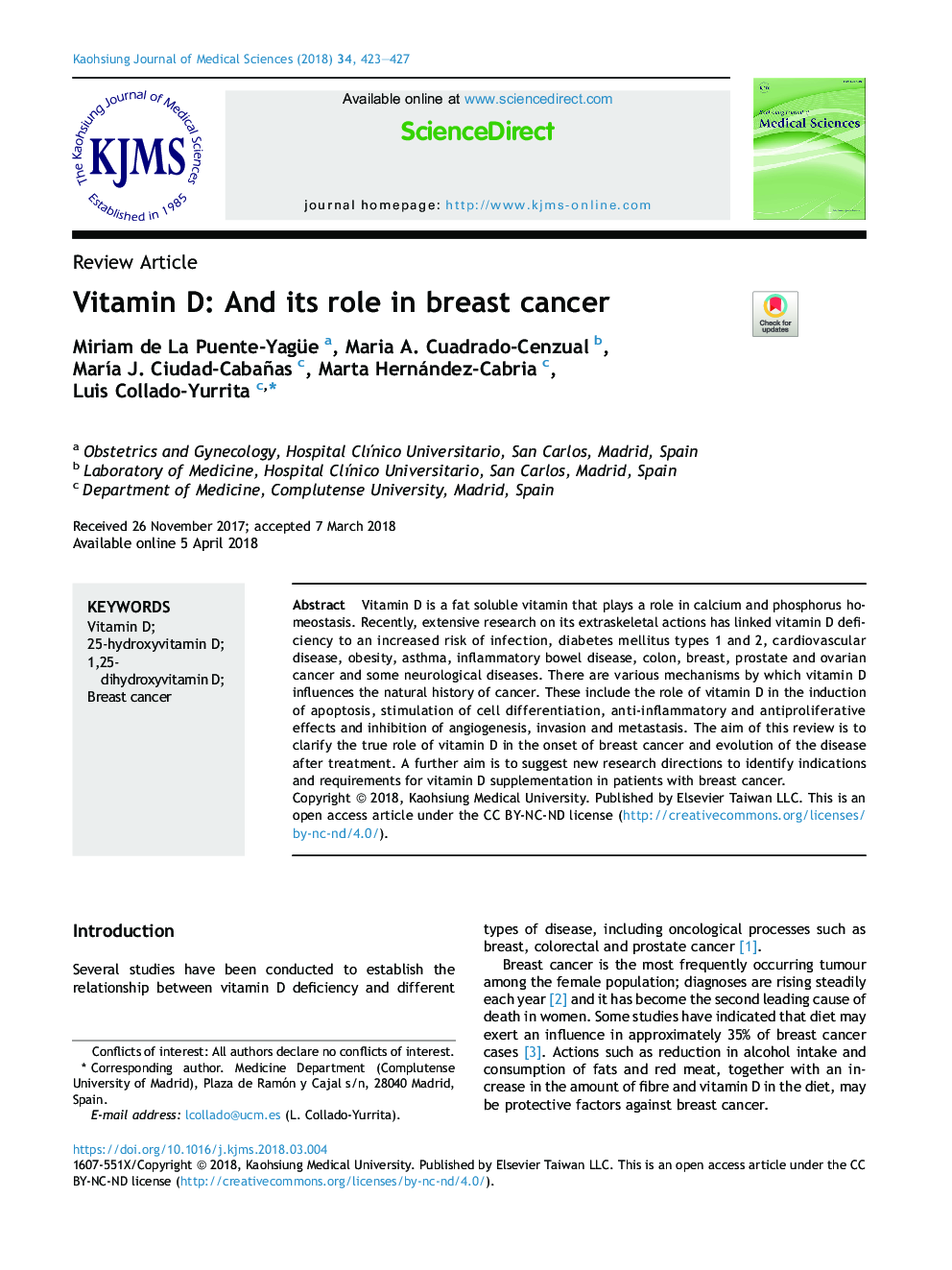| Article ID | Journal | Published Year | Pages | File Type |
|---|---|---|---|---|
| 8759547 | The Kaohsiung Journal of Medical Sciences | 2018 | 5 Pages |
Abstract
Vitamin D is a fat soluble vitamin that plays a role in calcium and phosphorus homeostasis. Recently, extensive research on its extraskeletal actions has linked vitamin D deficiency to an increased risk of infection, diabetes mellitus types 1 and 2, cardiovascular disease, obesity, asthma, inflammatory bowel disease, colon, breast, prostate and ovarian cancer and some neurological diseases. There are various mechanisms by which vitamin D influences the natural history of cancer. These include the role of vitamin D in the induction of apoptosis, stimulation of cell differentiation, anti-inflammatory and antiproliferative effects and inhibition of angiogenesis, invasion and metastasis. The aim of this review is to clarify the true role of vitamin D in the onset of breast cancer and evolution of the disease after treatment. A further aim is to suggest new research directions to identify indications and requirements for vitamin D supplementation in patients with breast cancer.
Related Topics
Health Sciences
Medicine and Dentistry
Medicine and Dentistry (General)
Authors
Miriam de La Puente-Yagüe, Maria A. Cuadrado-Cenzual, MarÃa J. Ciudad-Cabañas, Marta Hernández-Cabria, Luis Collado-Yurrita,
